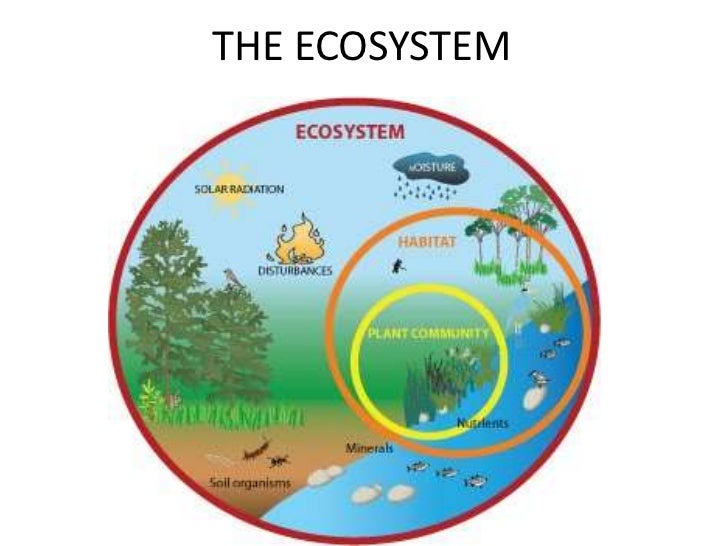Environment and Ecology
Environment
- Environment is defined as the social, cultural and physical condition that surround, affect and infulence the survival, growth and development of people, animal or plants.
- Environment includes everything around us. It encompasses both the living (biotic) and non-living (abotic) components of Earth.
- It consists of four segments: atmosphere, hydrosphere, lithosphere and biosphere.
Ecosystem
The term "ecosystem" was first coined by British ecologist Tansley. " An ecosystem is defined as a natural unit that consists of living and non-living components which interact to form a stable system".
Components of EcosystemThe components of an ecosystem are grouped as abiotic (non-living) and biotic (living).
- The abiotic factors include air, water, siol, tempreaure, chemical products etc.
- Biotic factors includes plants, animals and micro-organisms. This living component can be further divided into:
- Producers make their own food. Plant, algae and green bacteria are all producers.
- Consumers depend on producers for their food. Consumers are futher classified into primary, secondary and tertiary consumers
- Decomposers include bacteria and fungi, that feed on decaying matter.
Functions of Ecosystem
- It regulates flow of energy.
- It regulates the cycling of nutrients.
- It maintains balance among the various trophic levels in the ecosystem.


Comments
Post a Comment